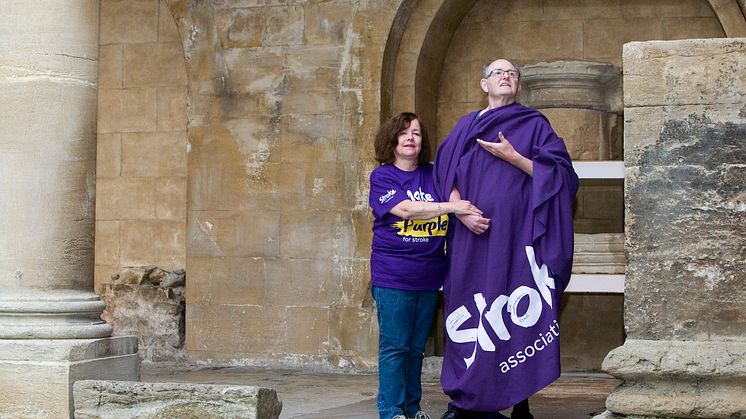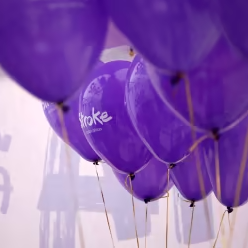
Press release -
Bath stroke survivor finds his voice
Bath resident John Carr, 57, is on the road to recovery after a stroke left him unable to say a single word in 2013.
John’s stroke left him unable to talk, walk or even swallow. John was nearly fitted with feeding tubes and told that it would unlikely he’d be able talk or eat solid foods again.
Despite his stroke, Johnhas been determined to find new ways to communicate again. His speech has made huge improvements, and he now volunteers for the Manvers Street Baptist Church Cafe three days a week.
John said: “I live a very active and fulfilling life. I have lost three stone since my stroke through a combination of healthy eating, gym and cycling. I volunteer three days a week and still enjoy going on holidays to different countries.
“From not being able to speak at all, I can now speak. I have expressive aphasia so although I can understand everything people say to me, I have problems replying.
“I find some people assume that I am not intelligent and speak to me as if I am stupid. This can be frustrating, especially considering how hard I have worked with my speech therapist to regain my speech. I also use a computer programme and books to practise speaking on a daily basis.
“My speech continues to improve, sometimes however, even though I know what I want to say, I can’t remember the word I want to use. Other times I will start a sentence and midway through I forget what I wanted to say. I find it takes a lot of concentration to have a conversation.
“To me one of the most important things is that I have got my Scottish accent back which I lost after my stroke. This is a very important part of my identity.”
John is one of more than 350,000 people in the UK with aphasia, a communication disability which can affect people’s ability to speak, read, write, use numbers and understand but not their intelligence. Aphasia is caused by stroke, head injury or other neurological conditions.
Philippa Gordon, Community Stroke Coordinator at the Stroke Association, said: “I’m so proud of John and the incredible steps he’s made in his recovery.
“Having aphasia can be so frustrating because many stroke survivors know what to say, but are unable to make themselves understood. Seemingly ordinary tasks like buying a pint of milk or using money can feel very stressful, and it is easy to lose confidence. Many people with aphasia can feel very isolated as a result.
“If people working in shops, cafes, banks and a huge variety of other customer service roles know about the disability and follow a few of our simple tips, the barriers to communication can be start to be broken down.”
The Stroke Association is raising awareness of aphasia and how people in the community can help support stroke survivors affected by the condition. To support this campaign, you can go to stroke.org.uk/aphasia or search for #aphasia on social media.
To find out more about local stroke services in Bath, contact Liz Jeggo on 01225 783 613 or Liz.Jeggo@stroke.org.uk
Related links
Topics
A stroke is a brain attack which happens when the blood supply to the brain is cut off, caused by a clot or bleeding in the brain. There are around 152,000 strokes in the UK every year and it is one of the largest causes of disability. There are over 1.2 million people in the UK living with the effects of stroke.
Stroke Association is a charity. We believe in life after stroke and together we can conquer stroke. We work directly with stroke survivors and their families and carers, with health and social care professionals and with scientists and researchers. We campaign to improve stroke care and support people to make the best recovery they can. We fund research to develop new treatments and ways of preventing stroke. The Stroke Helpline (0303 303 3100) provides information and support on stroke. More information can be found at www.stroke.org.uk











